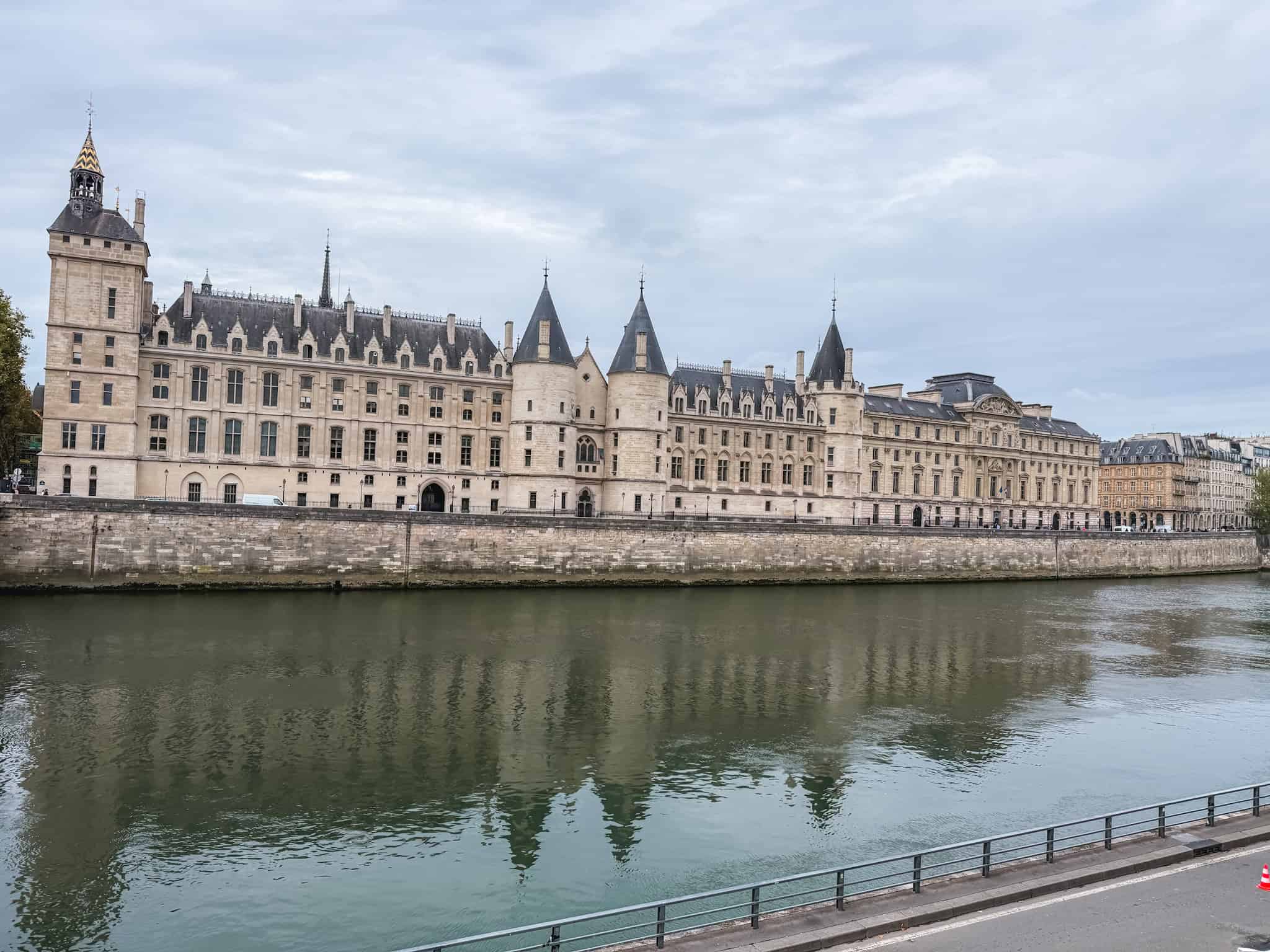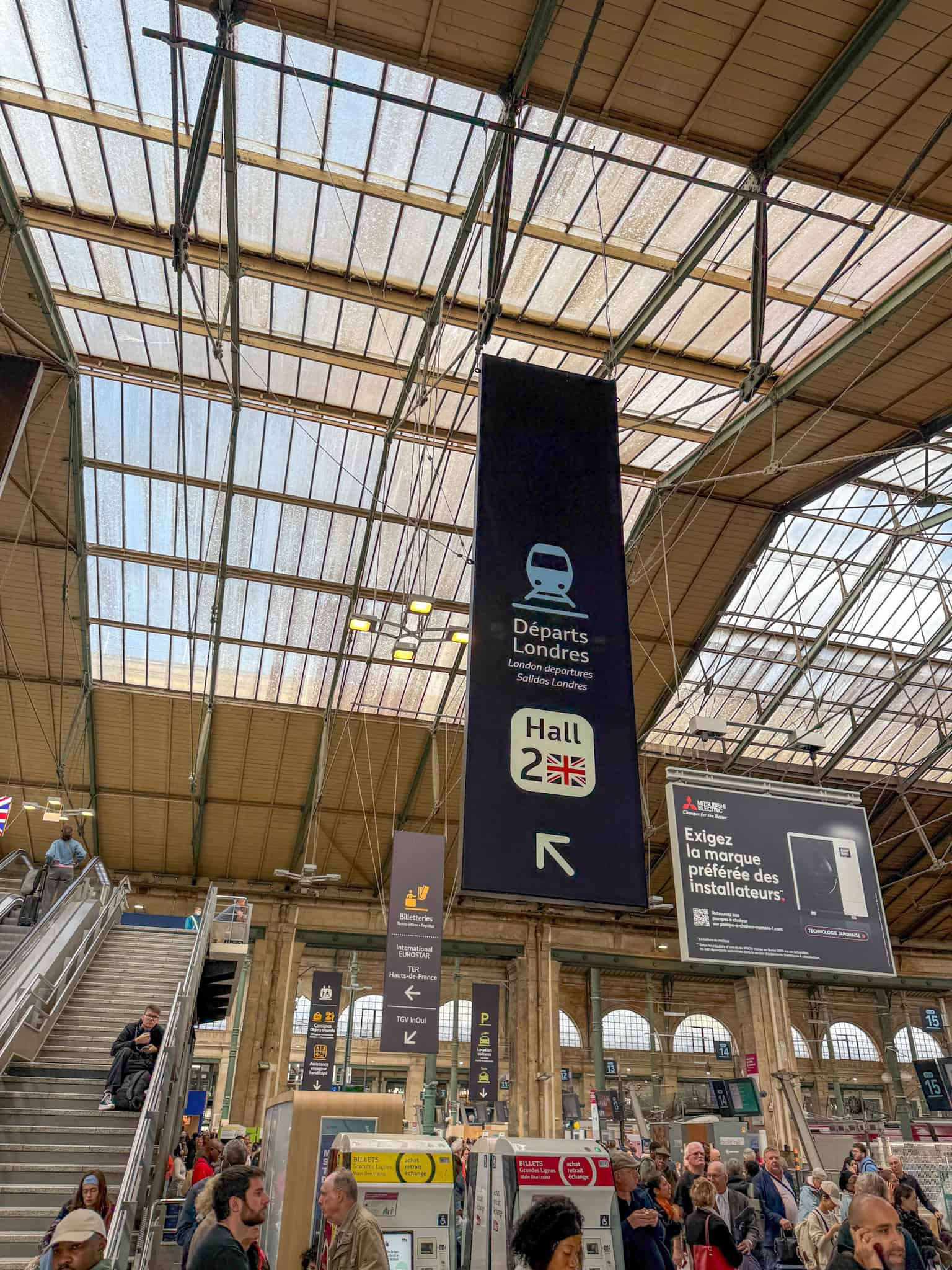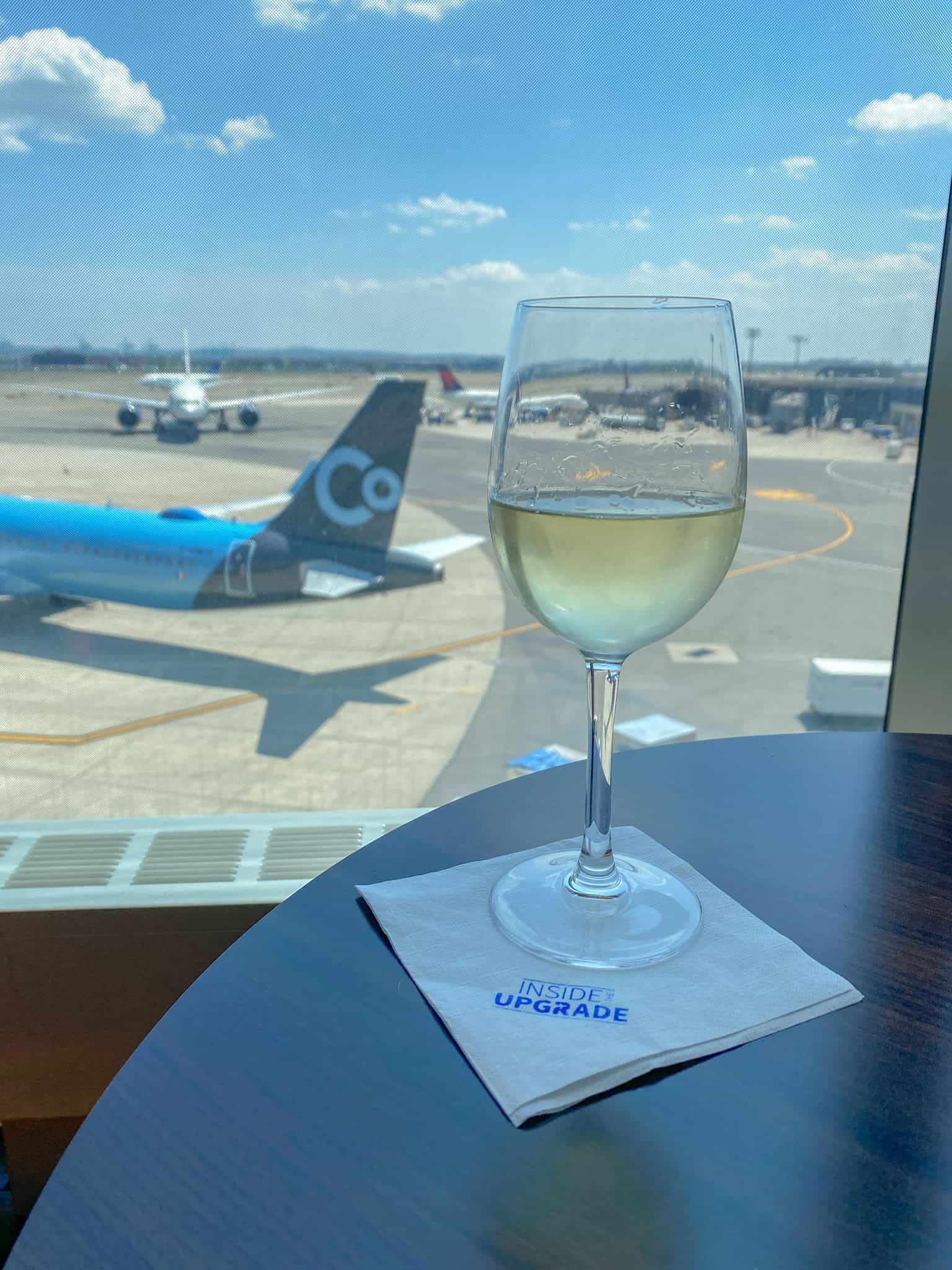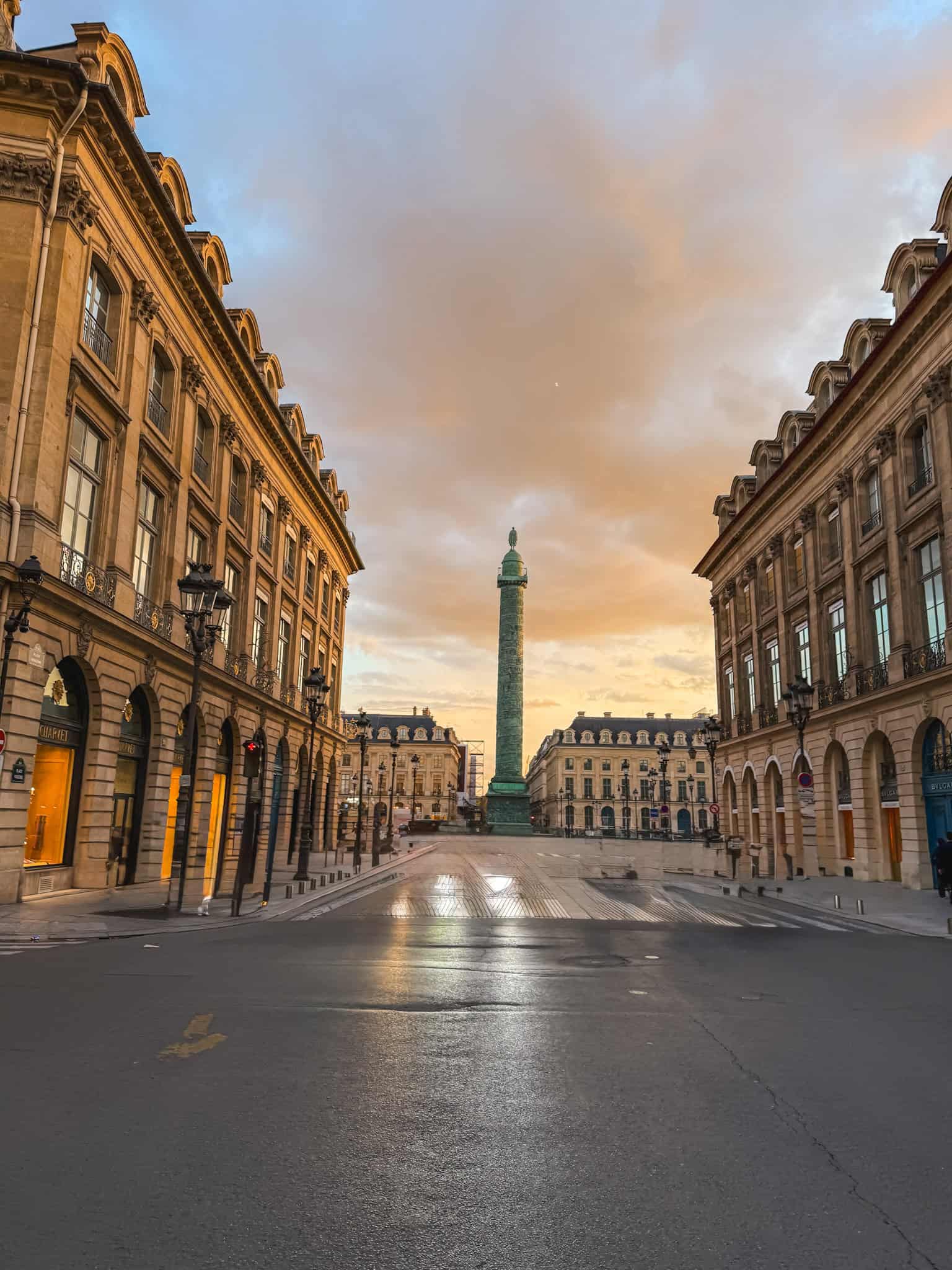Strikes in Paris: What Tourists Need to Know For a Smooth Vacation
Strikes in Paris are about as common as croissants at breakfast, and honestly, they’re not nearly as scary as they sound. I spend a month every year in Paris visiting family, and I’ve navigated my fair share of metro closures, train cancellations, and airport delays.

The first time I encountered a strike (which made me miss my train to Cannes), I panicked a little. By my third one, I’d learned to just roll with it. I discovered a new favorite wine bar because I had an extra afternoon to kill until my next train.
In fact, I’m dealing with a strike right now in the middle of my current trip to Paris, which is what inspired this article!
Here’s what you need to know: protests and strikes in Paris are a normal part of French civic life (they’re a very politically active people!), not a crisis.
Yes, they can disrupt your plans. No, they won’t ruin your Paris vacation. With a little flexibility and the right backup plans, you’ll be fine.
Let’s dive into this complete guide to what to do if there’s a strike or protest during your trip to Paris.
Strikes in Paris: Quick Guide
Running short on time? Here’s a quick guide to navigating protests and strikes in Paris and still having the best vacation ever.
Resources for Strikes
- Just because there’s a strike doesn’t mean your trip will be affected, always check!
- They are generally not dangerous. The French are usually protesting living conditions, not tourists directly.
- You can find resources here to see the latest, up to date information on protests and strikes in Paris
Where to Stay in Paris:
- Hotel de Londres if you want to be near the Eiffel Tower
- La Chambre du Marais for a trendy, local experience
- Le Meurice for true luxury
- Guide to the best neighborhoods in Paris here.
What to Do in Paris:
- 50+ things to do in Paris here (including restaurants!)
- Visit the Musée d’Orsay, see Monet’s Lillies at l’Orangerie, or the Louvre (with a skip-the-line ticket)
- Check out the Eiffel Tower and Notre-Dame
- See Le Crazy Horse Burlesque or a Seine river dinner cruise.
Why Are There So Many Strikes in Paris? (And Why They’re Actually Not a Big Deal)
The French take their labor rights seriously. Like, really seriously. Strikes are how workers negotiate for better pay, working conditions, and policy changes. It’s a deeply ingrained part of French democracy, and honestly, it’s kind of admirable how much they believe in collective action.

You’ll see strikes about pension reforms, inflation adjustments, budget cuts, and working conditions. Sometimes they’re one-day events, sometimes they last longer, but usually not more than a few days.
Air traffic controllers, train operators, metro workers, and even museum staff participate.
The important thing to remember is that these are organized labor actions, not dangerous situations. Paris is very safe and you’re probably not in any danger unless authorities tell you otherwise.
The French are usually protesting their government or working conditions, not directly targeting tourists. Most strikes are announced days or even weeks in advance, so you’ll have time to adjust your plans.
Resources for Checking the Latest Information on Strikes in Paris Today
For the most current information on upcoming strikes or strikes in Paris today, check these resources:
- World in Paris – Maintains a rolling 3-month strike calendar
- France Bucket List – Dedicated articles on SNCF and air travel strikes
- RATP website – Official Paris metro and RER (local train) updates
- SNCF Connect – National train service updates
- Aéroports de Paris – Flight status for CDG and Orly
You’ll want to check 2-3 days before your planned travel. That’s when you’ll get the most accurate information about what’s actually running. Strikes are sometimes called off at the last minute, or participation might be lower than expected.
If you’re staying at a hotel, your concierge can be incredibly helpful for getting local updates and suggesting alternatives. Don’t be shy about asking for help!
What Paris Strikes Usually Impact as a Tourist (And How to Work Around Them)
Most strikes in Paris affect public transportation. Sometimes that means reduced service, sometimes it means complete shutdowns. Here’s what you’re likely to run into and how to deal with it.
The Metro and Public Transport
Metro strikes are the most common disruption tourists face. Some lines might run on reduced schedules, others might shut down completely. The good news is that central Paris is incredibly walkable, and there are always alternatives.
Your backup plan: Uber, Bolt, or taxis work great. You can even grab a Vélib’ bike share and enjoy Paris from street level. Walking between neighborhoods is honestly one of my favorite ways to discover the city (unless I’m visiting Paris in the winter, then rideshare all the way!).
Trains (SNCF)
Train strikes can mess with day trips from Paris. If you were planning to visit Versailles, Giverny, or the Loire Valley, you might need to reschedule or book a tour instead.
Your backup plan: Check SNCF Connect 48 hours before your planned trip. Many trains still run during strikes, just on reduced schedules. If your train is cancelled, consider booking a tour that includes transportation instead.
Flights and Air Traffic Control
Air traffic controller strikes are the most disruptive because they affect flights across French airspace, not just flights to and from France. If you’re flying over France to get to Italy or Spain, you could be affected too.
Your backup plan: Build buffer days into your itinerary and consider travel insurance. And remember, airlines must rebook you if your flight is cancelled (so you’re protected!).
The silver lining to all of this? When strikes disrupt your carefully planned itinerary, you get to be spontaneous. That extra day in Paris means you can finally check out that coffee shop you walked past, book a last-minute cooking class, or just wander through a new neighborhood without a plan.
Metro Strikes in Paris: Getting Around When the Metro’s Down
Metro strikes can feel like a big deal when you’re planning one day in Paris or trying to maximize three days of sightseeing. But honestly, Paris is small enough that you have plenty of options.
Which Metro Lines Usually Keep Running
During partial strikes, automated lines like Line 1 and Line 14 often continue running because they don’t require operators. These lines connect major tourist areas, so that’s lucky for visitors.
Strikes are reflected on Google Maps if your line is interrupted, so your directions will tell you if there’s a problem!
You can also check the RATP website or app in the morning to see which lines are operating. They’ll usually post the day’s service levels by 6 AM.
Your Alternative Transportation Options
Walk: Paris is compact. Walking from the Louvre to Notre-Dame takes 15 minutes. From Notre-Dame to the Latin Quarter is another 10. If you’ve picked the right arrondissement to stay in, you can walk to most major sights.
Uber/Bolt/G7 Taxis: Ride-sharing works great in Paris. Download the apps before you travel. G7 is the official taxi service and can be more reliable during rush hour.
Vélib’ Bikes: Paris has an excellent bike share system. You can rent by the day and explore the city on two wheels. The bike lanes are protected and the city is pretty flat, so it’s easier than you’d think.
Buses and Trams: Sometimes buses run when the metro doesn’t. They’re slower because of traffic, but you get to see the city from street level. Google Maps will show you bus routes if you select “public transport” as your option.
My Strategy During Metro Strikes

Like I said, I treat metro strikes as an excuse to explore neighborhoods I wouldn’t normally visit.
I’ll walk from Montmartre down through the 9th and 10th arrondissements, stopping at my favorite cafes and bakeries along the way. The journey becomes the destination.
If I absolutely need to get somewhere on time (like catching a train), I just budget for an Uber and don’t stress about it.
Air Strikes in Paris: What to Do If Your Flight Is Impacted
Air strikes in Paris from air traffic controllers are probably the most frustrating because they can affect flights across all of Europe. During the July 2025 strikes, over 1 million passengers were impacted. So yeah, these are the worst.
What Airlines Must Do for You
Under EU passenger rights legislation, if your flight is cancelled, you’re entitled to:
- Rebooking on the earliest available flight – This includes flights with other airlines, not just your original carrier
- Hotel accommodation if you’re stranded overnight – The airline must provide this
- Meals and refreshments – They should give you vouchers
What you’re typically NOT entitled to is additional cash compensation, because strikes are considered “extraordinary circumstances” outside the airline’s control.
If You Need to Get Out of France At A Specific Time Anyway
Here’s a strategy I’ve used and recommended to friends: if French air transit airport strikes are affecting your departure, consider taking the train to Brussels or Amsterdam and flying from there.
To Brussels: Eurostar from Gare du Nord takes 1.5 hours to Brussels-Midi. From there, it’s a 15-minute train to Brussels Airport (BRU). Total time: about 2.5 hours from central Paris.
To Amsterdam: Eurostar from Gare du Nord takes 3.5 hours to Amsterdam Centraal. From there, it’s a 20-minute train to Schiphol Airport (AMS). Total time: about 4 hours from central Paris.
Eurostar typically runs during French strikes because it’s not a French company. I typically use Omio to find the best route.
You can also use Omio to find buses like FlixBus to Belgium, Germany, or other neighboring countries if trains are fully booked.
What to Do Right Now If Your Flight is Cancelled
If you get a notification that your flight is cancelled:
- Don’t panic. Take a breath. This happens to thousands of people. It will be okay!
- Call your airline immediately. Do this before going to the airport if possible. Lines will be long, but you need to get rebooked.
- Check alternative routes. Look at trains to nearby countries or cities with different airports.
- Book a hotel on a credit card with trip protection (more on this below). Keep all receipts.
- Document everything. Save emails, take screenshots, keep boarding passes. You’ll need this for insurance or credit card claims.
Train Strikes in Paris: Navigating SNCF Disruptions

Train strikes in Paris affect both local RER lines (which act as suburban metro lines within the city) and long-distance trains to other French cities or day trip destinations.
What Usually Happens During Train Strikes
SNCF typically runs 30-50% of normal service during strikes. They’ll announce which trains are running and which are cancelled.
The key is to check your specific train 48 hours before departure. Don’t assume it’s cancelled just because there’s a strike happening.
If Your Train Is Cancelled
SNCF will automatically refund your ticket or let you rebook at no extra charge. You can do this through the SNCF Connect website or app.
When my first train to Cannes was cancelled from a strike, I was rebooked on another 3 hours later.
Alternative options:
- FlixBus: They run affordable buses to most major French cities. Sometimes they’re even faster than trains when there are strikes.
- Rent a car: If you’re traveling with others, splitting the cost of a rental can be reasonable. Just be prepared for French highway tolls and parking in city centers.
- Book a tour (if that’s your goal): If you’re just trying to visit popular destinations like Versailles or the Loire Valley, many tours like these include round-trip transportation. If trains are unreliable, this takes the stress away.
Day Trip Backup Plans
If you were planning a specific day trip and trains aren’t running, consider pivoting to something within Paris instead. Maybe visit a museum you haven’t seen yet, check out the Crazy Horse show in the evening, or just wander through a new neighborhood.
Is rebooking a hassle? Yes. But take the extra day in Paris to do something off the beaten path and try a new wine. The trip isn’t ruined, it’s just different.
What Your Credit Card Travel Insurance May Cover During Strikes
This is where I love having a reliable travel card. Many premium travel credit cards offer trip delay insurance that CAN cover strikes. But the coverage varies significantly between cards, so you need to know what you have.

Important note: Always call your card issuer BEFORE you travel to confirm strike coverage for your specific situation. These benefits can be complex and you don’t want to be stuck!
Chase Sapphire Reserve® & Chase Sapphire Preferred® Card
Coverage: YES, explicitly covers strikes for trip delay reimbursement. See benefits guides here. This is one of the many reasons I always have a Chase card in my arsenal.
- Sapphire Reserve: Up to $500 per ticket for delays of 6+ hours.
- Sapphire Preferred: Up to $500 per ticket for delays of 12+ hours.
Both cards also cover strikes for trip cancellation/interruption if an organized strike causes you to miss 20% or more of your scheduled trip or miss the departure of a prepaid cruise or tour.
You’ll be reimbursed for hotel, meals, toiletries, and other reasonable expenses during covered delays.
You can learn more here about exactly how to apply for these cards (if the link no longer works, feel free to reach out to me and I’ll try to find the best current offer!)
Capital One Venture X Rewards Credit Card
Coverage: YES, explicitly covers labor strikes as a covered hazard
- Up to $500 per ticket for delays of 6+ hours or overnight stays. See full benefits guide here.
Covered hazards include “equipment failure, inclement weather, labor strikes, and hijacking or skyjacking.”
The Platinum Card® from American Express
Coverage: Generally does NOT explicitly cover strikes
Amex Platinum covers trip delays from weather and equipment failure, but strikes typically aren’t listed as a covered reason. See trip delay benefits here.
That said, Amex has other strong travel protections and benefits that make my Amex Platinum well worth it. Just don’t count on strike coverage specifically.
How to Actually Use Credit Card Travel Insurance Coverage
If you experience a covered delay:
- Keep every receipt. Hotel, meals, Uber, toiletries, everything.
- Get documentation from the airline or train company stating the reason for the delay. You need written proof that it was due to strikes.
- File your claim within the specified timeframe (usually 20-60 days). Each card has different requirements.
- Be persistent. Insurance claims can be the worst. They take time and may require follow-up.
Pro tip: If your flight is cancelled and you need to book an emergency hotel, use one of these premium credit cards and keep all receipts. Even if strike claims can be tricky, having documentation helps tremendously.
Free Consultations
Not sure which card is right for you? I offer free (actually free!) consultations here.
Bonus! A Custom Google Map of My Favorite Spots in Paris!
Whether you have extra time to kill because of Paris strikes, or you’re just looking to plan an amazing vacation, you can snag a free copy of my personal Google map of my favorite spots in Paris.
From restaurants to bars to shopping to museums, this map has it all (and I add to it every trip!)
FAQ: Strikes in Paris
No. Strikes in Paris are organized labor actions about working conditions and policy, not dangerous situations. They’re a normal part of French civic life. You might encounter crowds or demonstrations, but violence against tourists is extremely rare. Just stay aware of your surroundings like you would in any major city.
Honestly, strikes are fairly common, especially in fall and spring when budget negotiations happen. Some years are busier than others depending on the political climate. You might encounter a one-day strike, or you might not experience any strikes at all during your visit. It’s unpredictable.
Not if you stay flexible! Strikes might change your plans for a day or two, but they won’t ruin your entire trip. Think of them as an opportunity to be spontaneous and explore Paris differently than you’d planned.
A strike means workers aren’t working (metro operators don’t show up, trains don’t run). A protest or blockade means people are demonstrating in the streets. Sometimes they happen together, sometimes separately. Both can affect transportation, but strikes are more predictable because they’re usually announced in advance.
It depends. Airlines must rebook you if your flight is cancelled, but you typically won’t get cash compensation for strike-related delays. Some credit cards offer trip delay reimbursement that covers strikes. Check your specific card benefits.
Absolutely not! Strikes are manageable with a little flexibility and backup planning. Millions of tourists visit Paris every year during strike periods and have amazing trips. Don’t let the possibility of a strike keep you from visiting one of the world’s most beautiful cities.
Strikes in Paris: You’ve Got This

Look, I’m not going to pretend that strikes are fun. They’re not. Rebooking flights is annoying. Finding alternative transportation takes time. Having your carefully planned Paris itinerary disrupted is frustrating.
But after dealing with multiple strikes in Paris, they’re also not worth stressing about. The French have been doing this for generations, and the city keeps running. Tourists keep visiting. Life goes on.
With the resources in this guide, you know where to check for strike updates, how to work around transportation disruptions, what your credit card might cover, and most importantly, how to stay flexible when plans change.
Paris is incredible whether or not there’s a strike happening. The cafes still serve perfect croissants. The Seine still sparkles at sunset. The museums still hold masterpieces. And that extra day you didn’t plan for might turn out to be your favorite.
So book your trip, stay informed, and go with the flow. You’re going to have an amazing time.
Cheers to your next adventure! 🥂🇫🇷









